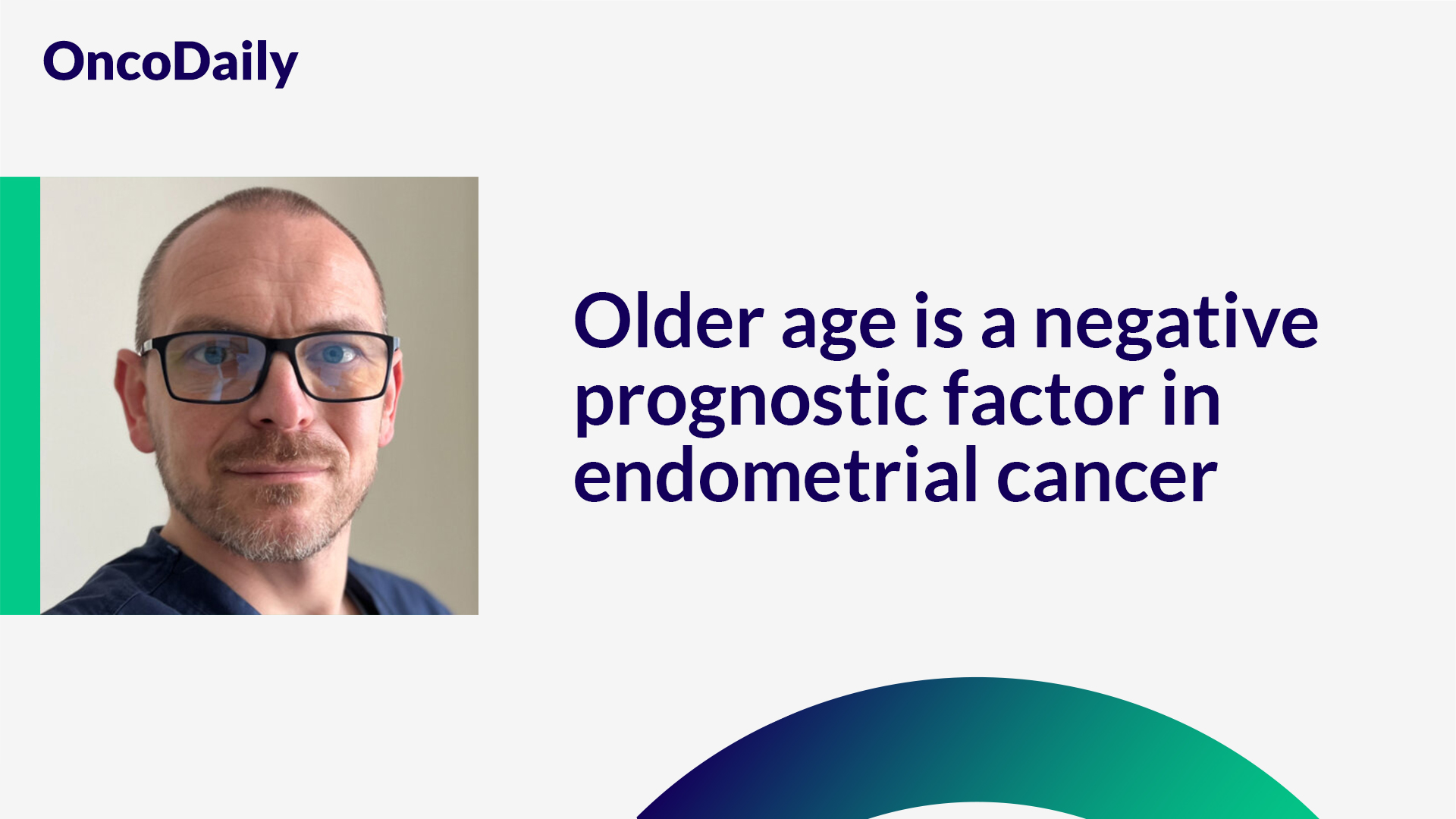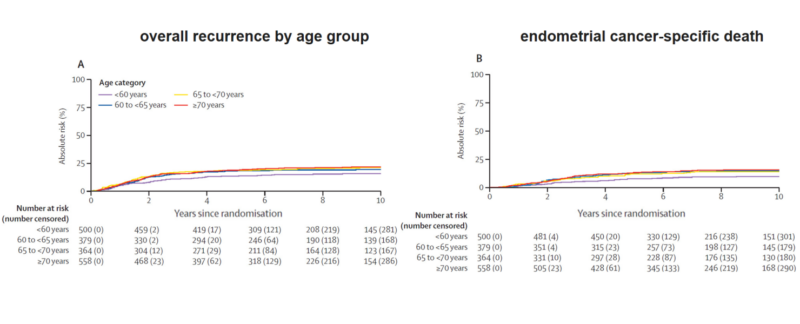Piotr Wysocki recently shared on LinkedIn:
“Wakkerman FC et al. published in Lancet Oncology an analysis of three randomized trials (Post Operative Radiation Therapy in Endometrial Carcinoma – PORTEC) PORTEC-1, PORTEC-2, and PORTEC-3.
Among 1801 women participating in these trials, 714 patients presented with intermediate-risk endometrial cancer, 427 patients with high-intermediate-risk endometrial cancer, and 660 patients with high-risk endometrial cancer. The median age of patients was 66 years, with 5.1% of patients (<50 years) and 4.0% (>80 years).
In the analysis of the three combined trials, the authors observed:
- Less often substantial lymphovascular space invasion (LVSI) in older patients
- Decrease in the frequency of POLE-mutated tumors with increasing age
- Increase in the frequency of p53-abnormal tumors with increasing age
- No differences in mismatch-repair deficiency across age groups
The age turned out to be:
- Independent risk factor for overall recurrence with a cause-specific HR of 1.02 per year (95%CI 1.01–1.04; p=0.0012)
- Independent prognostic factor for endometrial cancer-specific death (HR 1.03, 95%CI 1.01–1.05; p=0.0012)
- Independent prognostic factor locoregional recurrence (HR 1·02, 95%CI 1.00–1.05; p=0.030)
- Independent risk factor for vaginal recurrence (HR 1.05, 95%CI1.01–1.08; p=0.0059)
In causal inference analysis, the correlation between age and primary outcomes (overall recurrence and endometrial cancer-specific death) showed an accelerating increase in the cause-specific hazard rate, with age tending towards an exponential relationship.
In this pooled analysis of the randomized PORTEC-1, PORTEC-2, and PORTEC-3 trials, advanced age was associated with more aggressive tumor features and independently and causally related to worse oncological outcomes. The risk of recurrence and endometrial cancer-specific death steadily increased up to the age of 80 years.”
Authors: Famke Wakkerman, Jiqing Wu, Hein Putter, Ina Jürgenliemk-Schulz, Jan Jobsen, Ludy Lutgens, Marie Haverkort, Marianne de Jong, Jan Willem Mens, Bastiaan Wortman, Remi Nout, Alicia Léon-Castillo, Melanie Powell, Linda Mileshkin, Dionyssios Katsaros, Joanne Alfieri, Alexandra Leary, Naveena Singh, Stephanie de Boer, Hans Nijman, Vincent Smit, Tjalling Bosse, Viktor Koelzer, Carien Creutzberg, Nanda Horeweg
Source: Piotr Wysocki/LinkedIn
Piotr Wysocki leads the Clinical Oncology Department at University Hospital and the Faculty of Oncology at Jagiellonian University-Medical College in Krakow, Poland. As an advisor to the Polish Ministry of Health, he shapes the national cancer strategy.
His clinical expertise spans the systemic treatment of breast, gynecologic, and genitourinary cancers, with a focus on developing innovative metronomic chemotherapy-based therapies for advanced cancer patients who have undergone prior treatment.
Read other posts by Piotr Wysocki published on OncoDaily.

